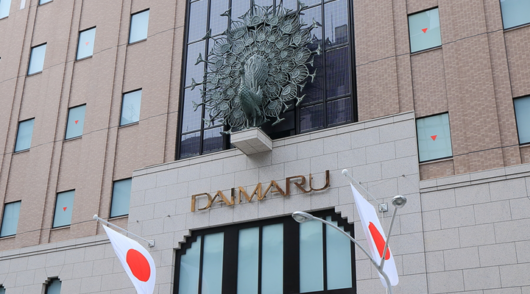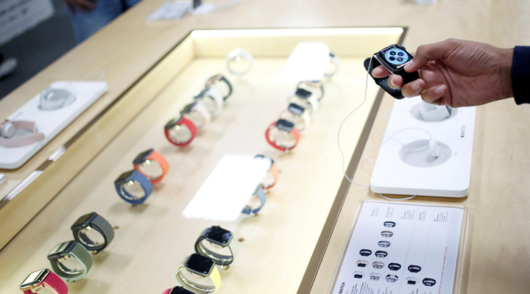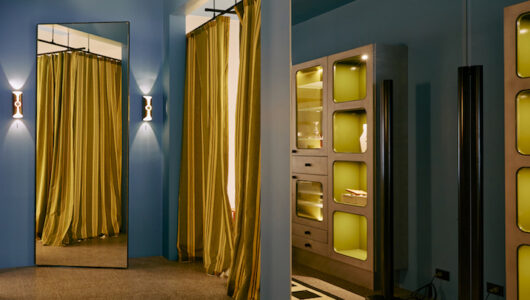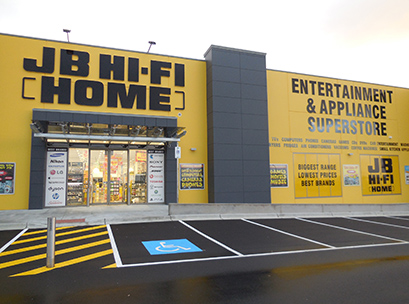 Despite indications of a lift in sales in the final days of the FY17, investors are increasingly nervous about retail stocks.
Despite indications of a lift in sales in the final days of the FY17, investors are increasingly nervous about retail stocks.
A stellar result for FY17, JB Hi-Fi scarcely cheered investors last Monday in an ominous sign for the results reporting season for Australian Stock Exchange-listed retailers.
Investor sentiment is being impacted by concerns about Amazon and worrying economic data about rising household debt levels and living costs, as well as concerns about jobs and wages.
The nervousness about the prospects for retailers is also being reinforced by looming writedowns on FY17 accounts by a number of retailers, the continuing invasion of global brands skimming off sales, earnings and market share growth and cautious CEOs about the outlook for the retail sector.
Investors marked down the share price of both Nick Scali, the listed furniture retailer, and Baby Bunting, despite solid gains in revenues and earnings after their CEOs indicated took a cautious yet not pessimistic view of the outlook for the current financial year.
The reaction does not auger well for other retailers including heavyweights, Myer, Super Retail Group, Woolworths and Wesfarmers, who will all book writedowns on their accounts for FY17.
Myer is still wrestling with turnaround costs in its department store business, but will also make provision in its financials for the Topshop collapse, while Super Retail Group will account for the restructure of its sports retail division and Woolworths and Wesfarmers will have further writedowns on Big W and Target respectively.
Star performer JB Hi-Fi maintains its position
Along with Bunnings, JB Hi-Fi has arguably been one of the two best performed retailers listed on the ASX for more than a decade and has not suffered any early adverse consequence from the acquisition of The Good Guys chain in November last year.
JB Hi-Fi lifted sales for FY17 by 42.3 per cent to $5.6 billion with a $1.26 billion contribution from The Good Guys, which actually recorded a modest 0.2 per cent increase, but a 1.3 per cent comparable sales decline for over seven months under its new ownership.
JB Hi-Fi’s increased its sales by 10.9 per cent to $4.15 billion for the full financial year with comparable store sales up 8.6 per cent and online sales growing 38.4 per cent to $158.9 million and now representing 3.8 per cent of total sales.
The Good Guys is expected to improve on its performance under new managing director Terry Smart as integration into JB Hi-Fi progresses and operating synergies are realised.
The $46.6 million net profit for the first seven months under its new ownership was in line with JB Hi-Fi expectations and the company believes there will be gains from having the ownership of The Good Guys settled, including the conversion of franchise stores to corporate outlets.
JB Hi-Fi’s share price hit $31.20 within the past 12 months and is currently sitting midway between that price and their low point of $21.20.
At the start of August, JB Hi-Fi shares were $26.29 and despite the robust results announced this week and assurances from CEO Richard Murray of continuing positive growth in July and momentum heading towards Christmas, the initial investor reaction was to stall the share price at $25.35.
An update from Nick Scali
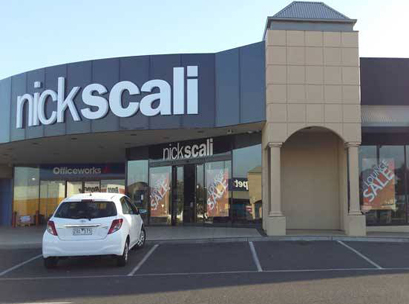 JB Hi-Fi certainly fared better than Nick Scali, which reported last week a 14.7 per cent boost in sales to $232.9 million and a 42.4 per cent increase in net earnings to $37.2 million, courtesy of strengthened margins and lower operating costs.
JB Hi-Fi certainly fared better than Nick Scali, which reported last week a 14.7 per cent boost in sales to $232.9 million and a 42.4 per cent increase in net earnings to $37.2 million, courtesy of strengthened margins and lower operating costs.
The result would normally have been welcomed by investors, especially given the challenging overall conditions of the past year, yet the furniture chain’s shares were cut sharply because CEO Anthony Scali conceded same store sales growth was likely to be lower than it had been for the past two years.
Scali was not predicting a gloom and doom situation, noting the retailer’s plans to open around 10 new stores in FY18 and has a strong balance sheet and healthy net cash position.
Scali did caution that the furniture market is directly influenced by consumer confidence, interest rates, unemployment levels and the volume of home renovations and housing sales and investors led an immediate retreat, despite FY17 providing a one third increase to their annual dividend.
Sales up at Baby Bunting
Baby Bunting suffered a similar rebuff from shareholders influenced more by a four per cent fall in sales in July than the 17.4 per cent gain in revenues for the full 2017 financial year.
Baby Bunting’s annual sales of $278 million were propelled by a healthy 6.9 per cent increase in same store sales that underpinned a 40.6 per cent boost in net earnings to $12.2 million.
CEO Matthew Spencer assured shareholders the baby business tends to ebb and flow with short-term distortion of comparative store sales.
Spencer expects like-for-like sales growth of mid-single digits this financial year, suggesting there is little cause for alarm and the sharp drop in the retailer’s share price.
Spencer also sought to counter nervousness about the stock associated with Amazon’s expanded operations by pointing out the chain regularly benchmarks its prices on 250 key lines and is cheaper on half of those lines than the US online retailer.
Baby Bunting is forecasting a lift in pre-tax earnings for the current financial year of between 10 and 17 per cent, bolstered by enhancement of its digital and online sales platforms and supply chain initiatives.
Oroton and Gap call it quits
With investors punishing retailers with good report cards for FY17, the reporting season is likely to be dismal in the weeks ahead and certainly for retailers who have bad news to trot out.
One of the retailers certain to be under pressure will be Oroton Group, which is undertaking a strategic review that could lead to the sale of the retailer or a recapitalisation or refinancing of debt facilities.
Oroton Group has reached agreement with Gap Inc to terminate its franchise agreement for the loss-making Gap stores that will be closed by the end of January next year.
The exit from the Gap business will relieve some pressure from Oroton Group, but will incur costs that will need to be written off in the current year and would be expected to see investors bail out. However, the prospect of a sale of the business may provide a short-term buffer to the beleaguered retailer.
Oroton Group has advised the ASX that it has received expressions of interest from “numerous parties” which are being evaluated with investment bank Moelis & Company acting as advisors.
One of the parties keeping tabs on the strategic review by the retailer is the apparel supplier and retail Gazal Corporation, which has acquired a 7.35 per cent stake in Oroton Group.
Gazal Corporation has licences for brands such as Calvin Klein, Tommy Hilfiger, Van Heusen, Pierre Cardin, Bracks, Nancy Ganz, Spanx and HoldmeTight.
While Sigma Healthcare has rebuilt its business and strengthened its retail brand portfolio, its share price is also likely to be under pressure leading up to its 7 September results announcement for FY17.
Sigma Healthcare CEO, Mark Hooper, last week issued a trading update to the ASX that its earnings outlook for the current financial year has been pared back due to challenging retail conditions.
While investors have not had a savage reaction to Hooper’s forecast of a reduction in net earnings in the current half year, Sigma’s shares are currently trading at around 84 cents, well below their 52 week high of $1.52.
Hooper has told investors the company has taken steps to improve sales performance and market share growth, enforcing consistent brand standards to improve the results in its pharmacy chains, Amcal, Guardian, Discount Drug Stores, Chemist King and PharmaSave.
Hooper said the company delivered above guidance growth in FY2017 and is confident it can overcome general market conditions to boost its performance in the second half of the current financial year.
How patient investors will be with that promise remains to be seen just as investor sentiment on the Big W, Target and Myer turnaround strategies could face a stern test, judging by their reactions to date in the reporting season.

